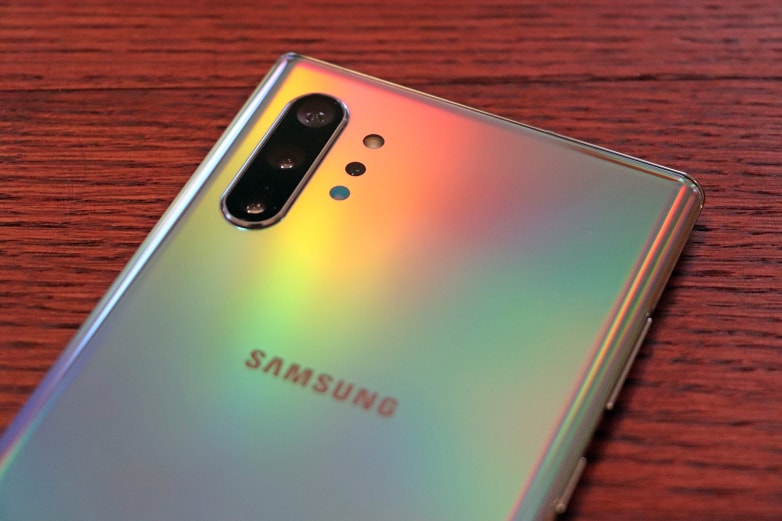
Days after explosions blasted through two oil tankers in the Strait of Hormuz, the crew of one of the vessels arrived Saturday in Dubai, according to The Associated Press.
The workers’ recollections of the Thursday explosion could potentially help back up or refute the U.S. claim that Iran is to blame. The nation’s capital of Tehran denies the accusation.
Though the cause of the explosions is not yet clear, Gulf countries are tightening their security measures on the Strait of Hormuz, and the oil tankers were a key topic of conversation as world energy ministers met Saturday in Japan.
The 10 employees working on the Norwegian-owned MT Front Altair landed in Dubai following two days in Iran, the AP reports.
The Front Altair caught fire after what the U.S. described as an attack with limpet mines, AP reports. These are mines that adhere to the sides of ships.
Black smoke billowed off the tanker, and a passing ship rescued the seamen aboard, according to the AP.
The manager of the ship said it’s treating the incident as a “hostile attack,” according to Bloomberg.
The Japanese-owned Kokuka Courageous was also struck. The president of the Kokuka Sangyo company operating the ship said he saw something fly toward the vessel, and he did not believe the ship was attacked by a mine or torpedo, NPR’s Bill Chappell, Peter Kenyon and Scott Neuman reported.
The Pentagon released a grainy video Friday showing what it says is an Iranian boat recovering a mine from the side of a Japanese vessel.
European countries have split over whether there is sufficient evidence to support the U.S. position that Iran is behind the attacks.
“You’d think it would be pretty obvious who is responsible for this, when we actually have video evidence that shows what the Iranians have been doing,” said British Foreign Secretary Jeremy Hunt.
German Foreign Minister Heiko Maas says he wants more proof of Iran’s role.
“The video is not enough. We can understand what is being shown, sure, but to make a final assessment, this is not enough for me,” Maas said, according to Reuters.
Haleh Esfandiari, the founding director of the Middle East Program at the Woodrow Wilson International Center, said the attacks were “a puzzle.”
“It’s difficult to accept the version we hear in the United States,” said Esfandiari, who is now a public policy fellow.
She noted that the attack on the Japanese vessel would seem unlikely because it occurred as Japanese Prime Minister Shinzo Abe visited Iran. But there were other possible reasons Iran might have launched the attacks, she said.
“There could be a rogue element among the Revolutionary Guards in Iran, who decided they would want to wreck every possible negotiation,” she said. Or perhaps Iran has decided to retaliate for U.S. sanctions that began after President Trump announced he would withdraw from the Iran nuclear deal.
“If you are sanctioning us, we can’t sell our oil, then we will make sure that the flow of oil slows down through the Strait of Hormuz,” she described as a possible Iranian line of strategy.
The attacks on the oil tankers were a top concern at a weekend meeting of energy ministers from the world’s strongest 20 economies, the G20, in Japan.
“We have shared an understanding among energy ministers that we need to work together to deal with the recent incidents from energy security point of view,” said Japan’s Industry Minister Hiroshige Seko, according to Reuters.
About a third of the world’s oil traded by sea passes through the Strait of Hormuz, and it’s a vulnerability that’s been contested before. In the 1980s, amid the Iran-Iraq war, the two countries attacked ships, reports NPR’s Tom Bowman. The U.S. escorted some ships, and Bowman reports “it got very complicated very quickly. The U.S. ended up firing on Iranian ships and shot down an Iranian airliner.”
Now, Gulf countries are stepping up measures to protect their oil exports, according to The Wall Street Journal.
Saudi Arabia increased security around oil facilities, the Journal reports, and the United Arab Emirates is working with shipping companies to beef up security in the Strait of Hormuz and the Persian Gulf.
Shipping insurance prices went up following the attacks, reflecting jitters around the safety of the waterway. Insurance rates for supertankers traveling from the Middle East to China had soared 34% after the explosions, the newspaper reports.
The price of a barrel of Brent crude oil shot up to a high of $62.64 a barrel Thursday and continued to trade near that high point on Friday.
























